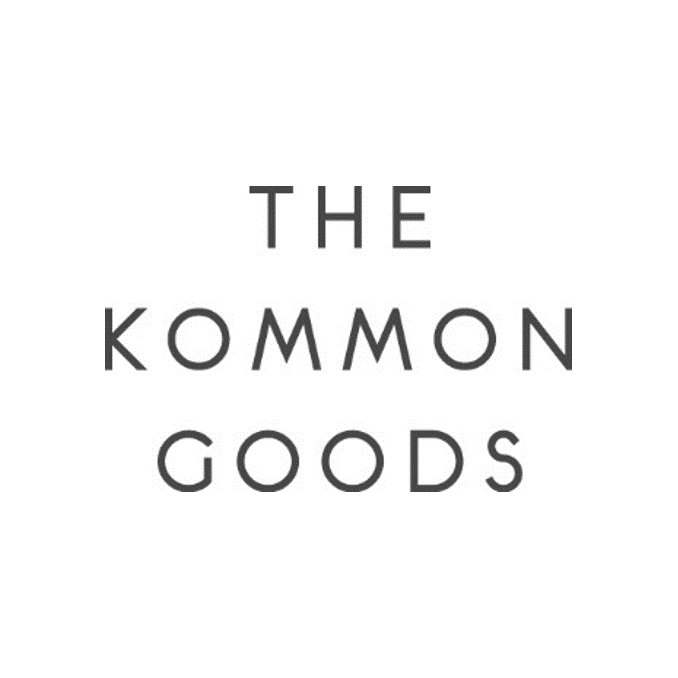


Aiming at making the planet as priority, Kommon Goods is a lifestyle brand offering eco-friendly everyday products accessible to all. Believing in the restorative power of eco-friendly materials and conscious consumerism, the social enterprise targets the behaviour change of mass consumption away from disposable plastics. In addition to the eco-friendly products, Kommon Goods is committed to raise public awareness over green living by building a knowledge hub of blogs, how-to articles and via social media.
Objectives/Issues addressed
Inspired by current unsustainable consumption habits, Kommon Goods aims at making the planet their priority and enabling green living accessible to all. The accumulation of plastic waste in the environment is now a global concern, where both China and India contribute to above a third of the global waste generation (OECD, 2014). It is predicted that consumer demand for plastic would dramatically increase in these countries under a business-as-usual scenario (Lebreton and Andrady, 2019). In Hong Kong, 3.5 million tonnes of unsustainable waste are generated every day; with 8 million tonnes of plastic entering the ocean every year. Public awareness of plastic waste pollution on the natural environment is yet to be built, developing momentum for social enterprise’s initiatives.
Difficulties
Kommon Goods faces the unsustainability of current mass consumption behaviour and affordability to everyday green living. Studies indicated consumer’s perceptions on plastic packaging and products as convenience, light weight, resistance and hygienic. Habits are critical for plastic consumption and change of norms as well as social desirability might facilitate a shift to sustainable habits. While some consumers are willing to reduce their plastic consumption, they partly failed since they were not able to apply new habits. As suggested by the Hong Kong’s Consumer Council (2016) survey, despite growing awareness on the importance of sustainable consumption, Hongkongers were only willing to do simple acts on everyday behaviour. The reluctance of consumption behaviour echoes the challenges faced by Kommon Goods. The survey further explored on consumers’ readiness in adapting to green living, where one-fourth of consumers were not prepared to pay a price premium for more sustainable products, especially for those with no income. Eco-friendly products are misperceived as premium luxury. Opting for eco-friendly products might not be affordable and convenient for all and thus, Kommon Goods encounters with the challenge on the affordability to daily sustainable consumption.
Approach and implementation strategy
In the wake of unsustainable mass consumption and affordability to green living, Kommon Goods proposes to transform mass consumption behaviour in twofold: raising awareness on the significance of sustainable living and changing individual’s consumption habits, as well as making eco-friendly products accessible to all. Kommon Goods introduces social innovations to enhance change towards green living and seek ways of promoting these initiatives, in turn expanding their sustainability effects.
The social enterprise produces affordable eco-friendly goods for all, including insulated stainless steel bottle, bamboo utensils, stainless steel metal straws with a cleaning brush and bamboo toothbrush in its own bamboo container. They are the most common goods used in everyday life, as the social enterprise named – Kommon Goods. Switch to using eco-friendly tools raises the awareness on the significance of disposable plastic products in polluting natural environment. The minimalistic and classy product design further encourages consumers shifting to a sustainable consumption habits with the eco-friendly tools. The eco-friendly products are also supplied to hotels, universities and as corporate gifts. Curated the sustainable common goods, Kommon Goods sells in an affordable price, making green living as easy as possible. The social enterprise also ensures their suppliers to have their products certified and avoid plastic during transportation process. The advocacy on less consumption on plastic products is consolidated through selling affordable eco-friendly tools for all. Committed to make the earth as priority, Kommon Goods donates 10% of all profits to the Nature Conservancy.
In addition to the sustainable kit, an awareness campaign is implemented, including knowledge transfer, creating an environmentally conscious brand identity for corporates, making hotels go green that travellers value, reducing plastic waste in food and beverage industry and attracting conscious customers, as well as gifting for a lasting green impression.
Partnerships and business model
Kommon Goods adopts a service subsidisation model through selling eco-friendly products and providing green service solution in environmentally conscious brand building. Instead of relying on grants like NGOs, the social enterprise advocates both social and financial return for sustainable development in both the company and the planet. Corporate with hotels and universities like Eaton and the Chinese University of Hong Kong, Kommon Goods promotes the perceived advantages on sustainable consumption to general public.
Sustainability impacts
Devoted to behaviour change of mass consumption, Kommon Goods has been expanding their products, ranging from coffee mug, upcycled shades to bin liner, to name a few. The quality of products is guaranteed to provide the best go green experience for users. While constantly working towards more sustainable and ethical supply chain, Kommon Goods provides green service solution and goes beyond green commitments with diverse business sectors.
Reference
Barlotta, Jill F. and Hardy, Scott D., (2018). Barriers and benefits to desired behaviours for single use plastic items in northeast Ohio’s Lake Erie basin. Marine Pollution Bulletin 127, 576-585
Consumer Council (2016). Sustainable consumption for a better future – A study on consumer behaviour and business reporting.
Lebreton, Laurent and Andrady, Anthony (2019). Future scenarios of global plastic waste generation and disposal. Palgrave Communications 5, Article number: 6 (2019)
OECD (2014). Economic outlook no 95. Long-term baseline projections. Accessed on 16 Sep 2019.